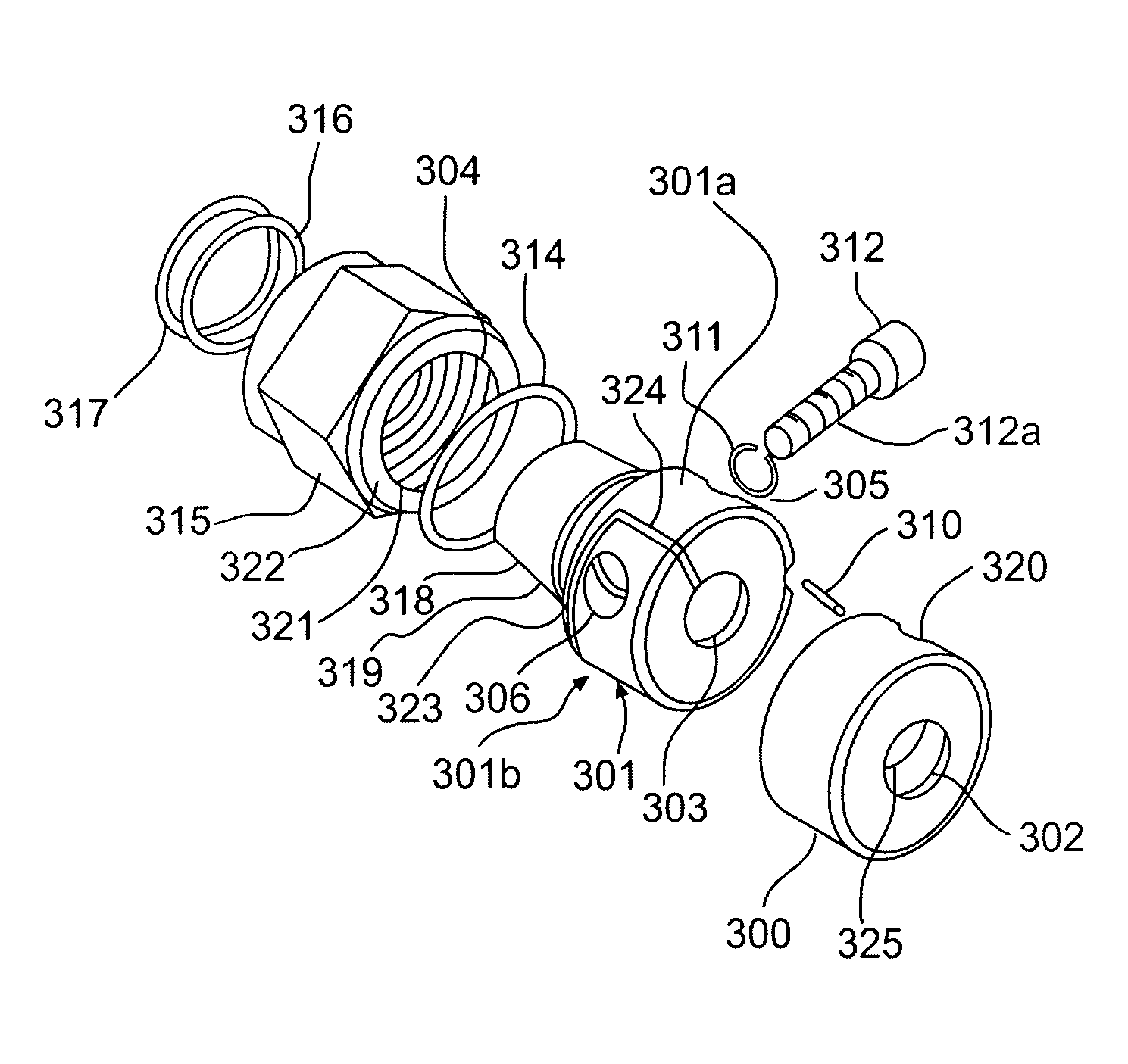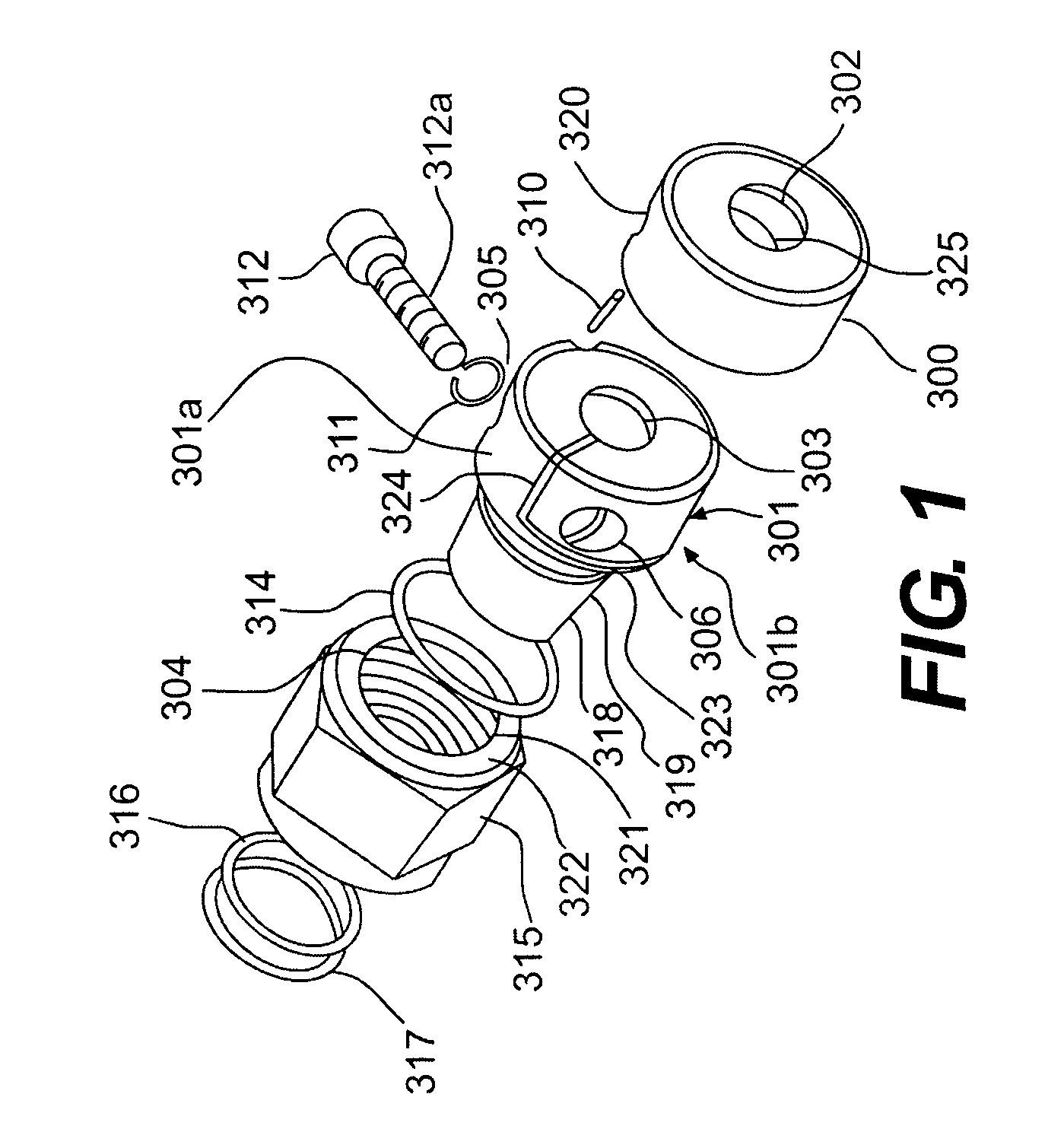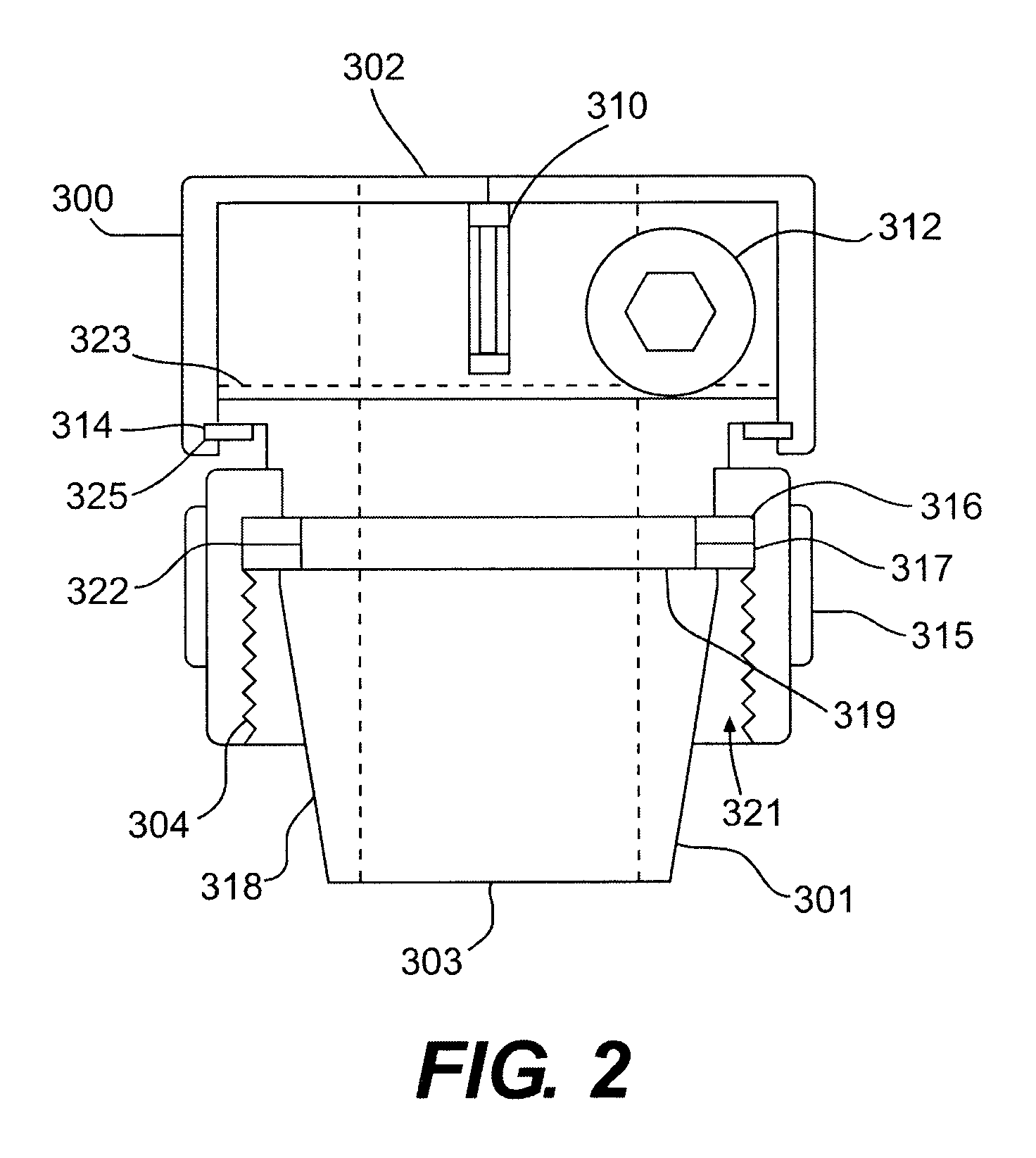Quick change power tool chuck
a technology of power tools and chucks, which is applied in the field of quick change chucks, can solve the problems of no chucks currently available, insufficient holding torque to prevent slippage, and cumbersome and time-consuming bit changing, and achieve the effect of increasing holding torque and preventing angular slippag
- Summary
- Abstract
- Description
- Claims
- Application Information
AI Technical Summary
Benefits of technology
Problems solved by technology
Method used
Image
Examples
Embodiment Construction
[0044]FIG. 1 shows an exploded perspective view of a preferred embodiment of the chuck device of the invention while FIGS. 2, 3(a) and 3(b) show various features of this embodiment. The chuck device is composed of nine parts as shown in FIG. 1, viz., a safety cover 300, a main body 301, a pin 310, a washer 311, a cap screw 312, a lock ring 314, a nut 315, and two further lock rings 316 and 317.
[0045]In accordance with a key feature of the invention, the main body 301 is adapted to be mechanically deformed by the incorporation thereof of two slots 323 and 324 that extend perpendicular to each other. These slots are perhaps best seen in FIG. 3(b) and, as shown, divide an annular end portion of main body 301 into a fixed part or side 301a and a movable part or side 301b. As illustrated in FIG. 3(a), slot 323 extends inwardly from the circumferentially extending side surface of main body 301 so as to terminate in the main body 301 along a line (indicated by the dashed line 323) a portio...
PUM
| Property | Measurement | Unit |
|---|---|---|
| circumferential shape | aaaaa | aaaaa |
| thickness | aaaaa | aaaaa |
| holding force | aaaaa | aaaaa |
Abstract
Description
Claims
Application Information
 Login to View More
Login to View More - R&D
- Intellectual Property
- Life Sciences
- Materials
- Tech Scout
- Unparalleled Data Quality
- Higher Quality Content
- 60% Fewer Hallucinations
Browse by: Latest US Patents, China's latest patents, Technical Efficacy Thesaurus, Application Domain, Technology Topic, Popular Technical Reports.
© 2025 PatSnap. All rights reserved.Legal|Privacy policy|Modern Slavery Act Transparency Statement|Sitemap|About US| Contact US: help@patsnap.com



